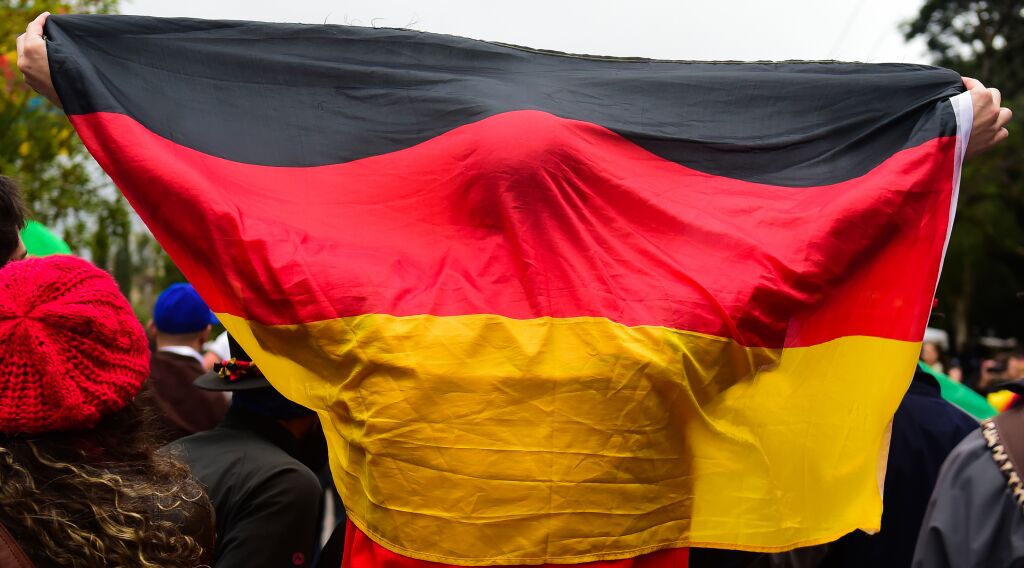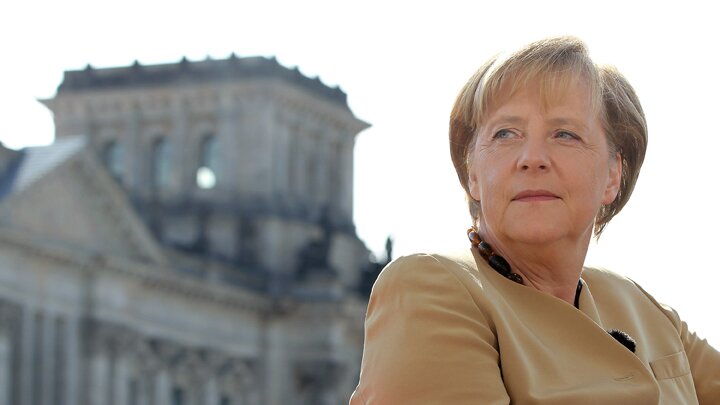
Germany and the World Reflect on World Cup Victory
“Welcome to the German Century,” declares the latest front cover of Newsweek. When Germany won the World Cup on July 13, it provoked the usual global discussion on what it says about the victor. For Germany, the verdict is very positive.
“The German way of doing things that emerged out of the ashes” of two world wars “has not only been deemed acceptable neither hated nor feared—it is also emerging as the best path forward for Europe, the West, the world,” the article reads.
“Where Britain’s dominance during the 19th century had to do with its colonial reach, and the American century grew out of military might and cultural hegemony, Germany’s ascendance in the global imagination is more likely to stem from the peaceable export of political and business models that have proven remarkably successful in their mother country,” Newsweek continues.
Meanwhile, Bloomberg points to the considerable power Germany has already, noting that “the victory is a symbol of the country’s resurgence” in an article titled “Germans, New Masters of the World.”
“Berlin, not Brussels, is the true political capital of the bloc: U.S. President Barack Obama met with Merkel in Germany twice in his first year as president (and visited Berlin during his election campaign),” Berlin-based journalist Leonid Bershidsky writes. “He put off his first visit to the Belgian capital until this year. It is Merkel who has taken on the role of chief Western negotiator with Russia’s increasingly hostile president, Vladimir Putin, not just because each speaks the other’s language, but because of her implied seniority in Europe. No top EU appointment happens without Merkel’s approval …. And German influence in the EU’s institutions will only grow.”
“Last night on the streets of Berlin, people of many ethnicities launched fireworks, danced and clinked beer mugs in celebration of their soccer victory, but perhaps also of something bigger: a new, non-threatening pride and confidence that Germany has allowed itself to feel now that it is finally one strong country again,” Bershidsky concludes.
Germany, “for the first time, has become a rather ordinary country,” it continues. Germany is “not being regarded anymore as the eternal tank brigades, but rather as a more and more colorful nation that adores eating Italian pasta and drinking French wines in its increasingly cosmopolitan cities.”

Germany’s Spiegel magazine picks up on this same theme. “Who are we, again?” the front cover of the July 14 issue asks.
“Germans discovered a new lightness of being in the run-up to their World Cup victory,” begins the cover article. “It’s a shift apparent not only in football. Increasingly confident and content, Germany is emerging from the dark shadows of its past, but its global role remains elusive.”
“In other words: There’s a new feeling of what it means to be German,” it writes.
The first change highlighted is that Germany’s reunification is finally complete. Now, no one notices which side of the Berlin Wall Germany’s players were born on. “A quarter century after reunification, it seems, old East-West prejudices are finally fading,” the article concludes.
“The Germans have become one again—they’ve become Germans,” Spiegel continues. “Prefixes are no longer needed. That significantly reduces inhibitions and contributes to the new lightness of being.”
Remembering today no longer means that you can’t laugh or be happy. The Germans have already learned to shed part of their collective depression, a development that first became visible at the World Cup in 2006, which provided the world with a fantastic party. Today we can remember the past with anger and with sadness, but without becoming overly uptight about it.
Under Chancellor Angela Merkel, the nation is once again confident enough to really engage with the world and even adopt a nationalist foreign policy, the article continues. Merkel’s “is a cool form of nationalism, free from pathos, symbolism and swagger—but it is unrelenting.”
Spiegel’s conclusion is probably the most insightful of all the pieces penned in the wake of the World Cup:
Germany’s political profile currently looks as follows: Domestically, Germans are pampered by Merkel’s governing coalition and see no reason to bicker with one another. Abroad, however, there is no overarching vision and even less consensus. The country used to play the role of model student and was America’s best friend in Europe. That is no longer the case, but what is next? …
Blitheful contentment, cool nationalism, egoistic risk avoidance: What does the sum total look like? It certainly isn’t a 7:1—it’s not pure beauty. One still can’t speak of a relaxed German nation; rather it is a country that is losing its inhibitions. It is finding its way back to itself, but is still searching for its role in the global community. Should it sit quietly in the corner or should it take on a leadership role reflective of its size and economic strength? What is missing is a national team coach, one that stipulates a clear path forward.
That’s what the Trumpet has been saying for years. Germany easily has the power to be one of the world’s leading nations, but it lacks a “team coach” to harness and direct that power—to give the nation the vision of what to do with that power.
But even without that national coach, Germany’s World Cup victory, with the sportsmanlike conduct of its players and gracious treatment of its Brazilian hosts, has confirmed the world’s view of Germany as one of the nicest and most effective nations.
https://twitter.com/FootballFunnys/status/488692316907909120/photo/1
It seems churlish to say it, especially after so much well-deserved praise for Germany, but there are some major reasons to be cautious. As Trumpet columnist Brad Macdonald noted in our December 2013 cover article “We’re All Falling in Love With Germany”:
One thousand years of history teaches that when Germany is united and strong, and when it is ruled by a particular type of leader, its natural tendency is to expand and conquer. One thousand years of history teaches that the German people have a deeply rooted nationalism that can be exploited and can lead to cruel and violent action. One thousand years of history teaches that the German people, for all their wonderful qualities, have a deep weakness for embracing tyrannical leaders.
Mesmerized by the moment, we reject 1,000 years of history! Whenever I read about the history of the 1930s and the rise of Hitler and the Nazi Party, I’m always struck by the behavior of Britain and America. Many people weren’t merely naive or ignorant of Hitler and his ambitions. Many actually admired the man, his ambitions, and even Nazism. Shockingly, many British politicians, artists and media personalities visited Germany and fell in love. Can you imagine? Many British and American leaders were infatuated with Germany—just years before Hitler thrust the world into a nightmare! There’s a powerful lesson there for us today. Sure, no German leader is publicly declaring his hatred for Jews the way Hitler did. Germany doesn’t appear to be as militaristic. We haven’t seen ominous edicts like Hitler’s Nuremberg laws. Nevertheless, Germany—in spite of, or perhaps because of, its long history of imperialism—is rapidly gaining dominance. History demands that we be more careful.
By all accounts, right now, Germany is a wonderful nation. It sets a better example than Britain and the United States in so many areas. But, as Mr. Macdonald warns, we cannot be “mesmerized by the moment.” For a much more in-depth analysis of the dangers involved when we look at Germany’s current standing in historical context, read “We’re All Falling in Love With Germany.”
